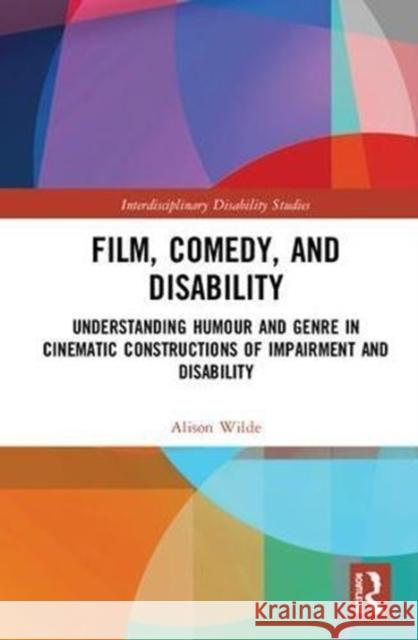Film, Comedy, and Disability: Understanding Humour and Genre in Cinematic Constructions of Impairment and Disability » książka
Film, Comedy, and Disability: Understanding Humour and Genre in Cinematic Constructions of Impairment and Disability
ISBN-13: 9781472455451 / Angielski / Twarda / 2018 / 196 str.
Film, Comedy, and Disability: Understanding Humour and Genre in Cinematic Constructions of Impairment and Disability
ISBN-13: 9781472455451 / Angielski / Twarda / 2018 / 196 str.
(netto: 694,26 VAT: 5%)
Najniższa cena z 30 dni: 654,86 zł
ok. 16-18 dni roboczych.
Darmowa dostawa!
There is much to be gained from a synthesis of critical/disability studies with film studies. This groundbreaking book analyses representations of disability in comedy films, arguing that meanings of disability and impairment drawn from cinema need to be grounded in an understanding of cinematic practices and processes. A valuable framework for doing so is by recognizing the importance of genre in the production of cinematic texts and also in shaping the expectations of the audience. An understanding of genre/form and of processes of audience interpellation and viewing position are crucial to such enterprises, alongside other key cinematic issues, such as narrative analysis, cinematography, sound and mise-en-scene Disability and humour flies in the face of centuries of sentimentality and tragic portrayals, which is why it deserves scholarly attention. It is clear from disabled people s histories and criticisms of cultural representation that comedy and humour have played a major part in forming cultural attitudes towards disabled people and in shaping disabled people s images of themselves. Wilde thus grounds her analysis in film studies and the sociology of humour so as to understand comedic constructions of disability and impairment and to engage fully with the complexity of humour and polysemy. Such an enterprise is essential if we are to avoid one-dimensional or overly-optimistic explanations of the transgressive possibilities of comedy."











